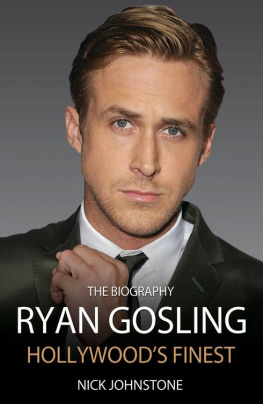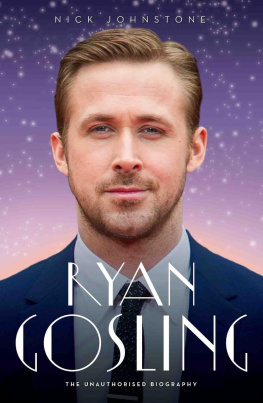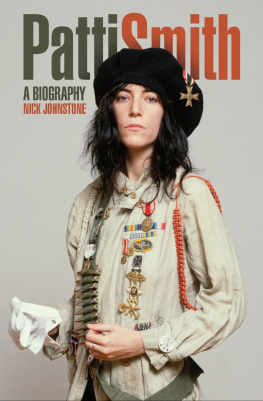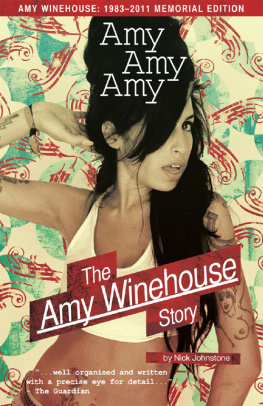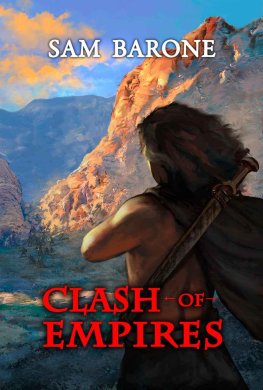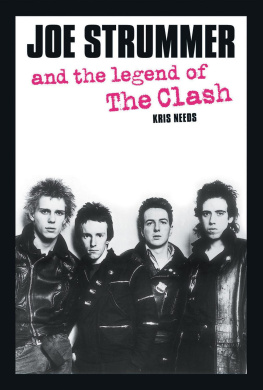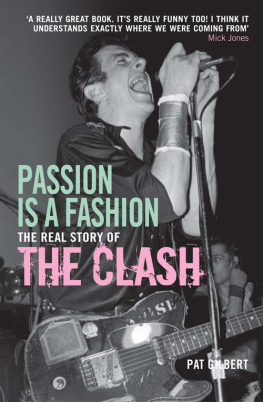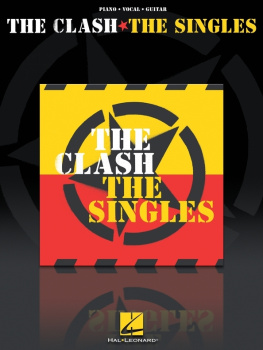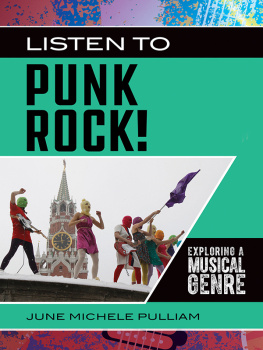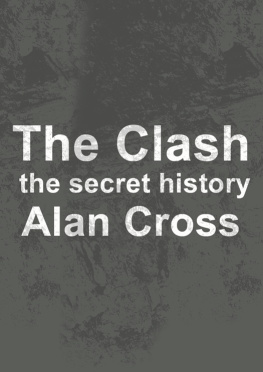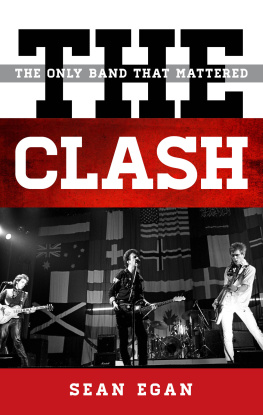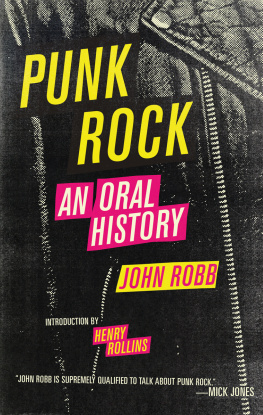Nick Johnstone - Clash
Here you can read online Nick Johnstone - Clash full text of the book (entire story) in english for free. Download pdf and epub, get meaning, cover and reviews about this ebook. year: 2006, publisher: Omnibus Press, genre: Detective and thriller. Description of the work, (preface) as well as reviews are available. Best literature library LitArk.com created for fans of good reading and offers a wide selection of genres:
Romance novel
Science fiction
Adventure
Detective
Science
History
Home and family
Prose
Art
Politics
Computer
Non-fiction
Religion
Business
Children
Humor
Choose a favorite category and find really read worthwhile books. Enjoy immersion in the world of imagination, feel the emotions of the characters or learn something new for yourself, make an fascinating discovery.

- Book:Clash
- Author:
- Publisher:Omnibus Press
- Genre:
- Year:2006
- Rating:4 / 5
- Favourites:Add to favourites
- Your mark:
- 80
- 1
- 2
- 3
- 4
- 5
Clash: summary, description and annotation
We offer to read an annotation, description, summary or preface (depends on what the author of the book "Clash" wrote himself). If you haven't found the necessary information about the book — write in the comments, we will try to find it.
Clash — read online for free the complete book (whole text) full work
Below is the text of the book, divided by pages. System saving the place of the last page read, allows you to conveniently read the book "Clash" online for free, without having to search again every time where you left off. Put a bookmark, and you can go to the page where you finished reading at any time.
Font size:
Interval:
Bookmark:
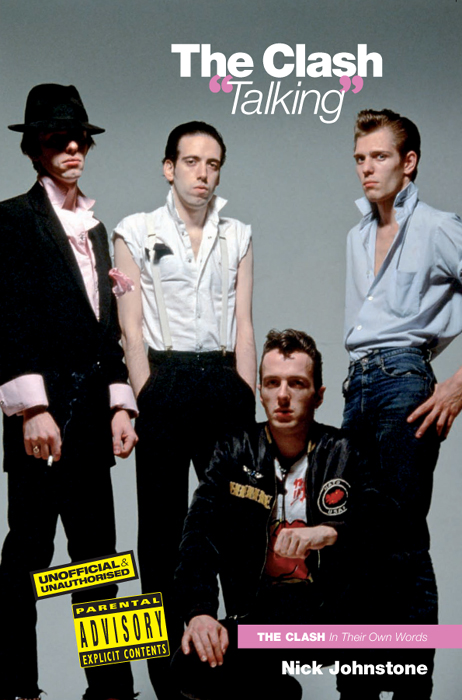
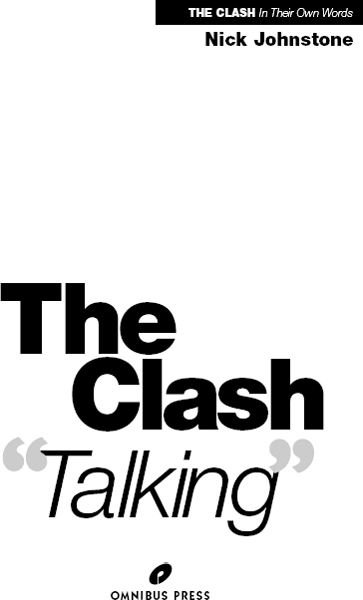
Copyright 2010 Omnibus Press
This edition 2010 Omnibus Press
(A Division of Music Sales Limited, 14-15 Berners Street, London W1T 3LJ)
ISBN: 978-0-85712-258-2
The Author hereby asserts his / her right to be identified as the author of this work in accordance with Sections 77 to 78 of the Copyright, Designs and Patents Act 1988.
All rights reserved. No part of this book may be reproduced in any form or by any electronic or mechanical means, including information storage and retrieval systems, without permission in writing from the publisher, except by a reviewer who may quote brief passages.
Every effort has been made to trace the copyright holders of the photographs in this book, but one or two were unreachable. We would be grateful if the photographers concerned would contact us.
A catalogue record of this book is available from the British Library.
Visit Omnibus Press on the web: www.omnibuspress.com
For all your musical needs including instruments, sheet music and accessories, visit www.musicroom.com
For on-demand sheet music straight to your home printer, visit www.sheetmusicdirect.com
Cover & Book designed by Fresh Lemon.
Picture research by Sarah Bacon.
Photo credits:
Front cover: Sipa Press/Rex Features; back cover: LFI.
All images courtesy of LFI except: Andre Csillag/Rex Features: 42, 49, 54, 100, 128; Ian Dickson/Redferns: 71; EVT/Rex Features: 38; PRE/Rex Features: 50, 64, 106, 109; Brian Rasic/Rex Features: 81, 84; Ebet Roberts/Redferns: 30, 92, 97, 112; Lex Van Rossen/Redferns: 105; Sipa Press/Rex Features: 59, 108; Ray Stevenson/Rex Features: 23, 27, 75, 76, 79; STI/Rex Features: 43; Richard Young/Rex Features: 22.
Picture Section: Andre Csillag/Rex Features: 2; Nils Jorgensen/Rex Features: 3; LFI: 4, 5, 6, 7, 8; Rex Features: 1.
On Bernie Chimes Rejoining
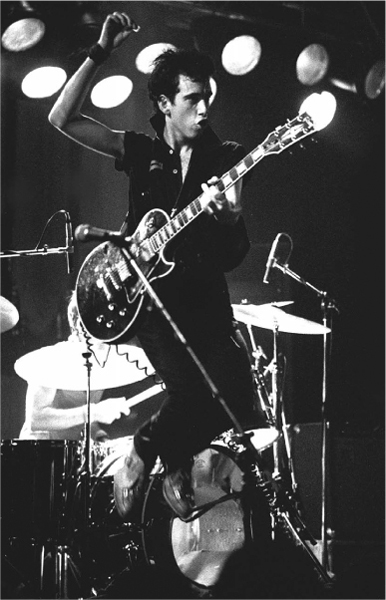
We came, we made music, we exploded. JOE STRUMMER, 2002
The striking thing about The Clash was that, as universal as their appeal grew to be, all the influences in their music could be attributed to a few square miles of London. When I think of them, I think of Ladbroke Grove in West London. I can see the doorways and the record shops. I can remember the smell of the jamaican restaurants. BONO, 2004
Over five classic albums, one resounding dud of a sixth (as The Clash Mk. II) and a slew of ground-breaking singles and EPs, The Clash burned brightly and briefly, before imploding in a mire of drug problems, ego tussles and inter-band politics. During their short lifetime, they blazed a pioneering trail, breaking early from the confines of the British punk scene to embrace first black music (chiefly reggae), then American music at large (rockabilly, rhythm n blues, rap, jazz, Motown), before synthesising their influences and marrying them to a raggedy white guitar driven rock n roll template.
By the time that journey was complete, drummer Topper Headon was wrestling heroin addiction, Joe Strummer and Mick Jones were butting heads over who was the real star of The Clash, Paul Simonon was going with the flow and the bands latest and biggest selling album to date, Combat Rock, was riding high in charts worldwide. They had come a long way from the squats and club gigs of 1976. Perhaps too far. A year later, in 1983, Strummer and Simonon kicked Mick Jones out of the band, effectively killing off The Clash. Initially, Strummer, Simonon and three faceless musicians soldiered on as The Clash Mk. II, releasing the universally panned Cut The Crap album, before wisely calling it a day in 1986.
The Clash came together in 1976, when Bernie Rhodes, then semi-managing a Paddington band called London dragged co-founding member Mick Jones (born London, June 26, 1955), fledgling bassist Paul Simonon (born Thornton Heath, December 15,1956) and lead guitarist Keith Levene (later of Public Image Ltd) to see The 101ers, a London pub rock band. On seeing the wired stage presence and boundless charisma of 101ers frontman Joe Strummer (born John Graham Mellor, Ankara, Turkey, August 21, 1952), the London SS crew invited Strummer to jump ship and join their band. Strummer, who had recently seen The Sex Pistols and realised that punk was what made his heart beat faster, didnt even have to think about it. A few rehearsals and band names later, Simonon crowned them The Clash. With Terry Chimes (born London, January 25, 1955) on drums, they made their live debut in Sheffield on July 4, 1976, opening for The Sex Pistols (a logical move since Bernie Rhodes had long known the Pistols manager Malcolm McLaren).

Over the next year, Levene left the band, punk broke into the mainstream, The Clash took off on The Sex Pistols Anarchy tour at the end of 1976, entered the following year signed to CBS records for a 100,000 advance and unveiled their anthemic debut single, White Riot in March 1977. They also perfected an iconic image for themselves - a mix of clothing from Portobello market sprayed with slogans and turned their live show into one of the hottest around. When their debut album The Clash, speed-recorded over three weekends, appeared in April 1977, it blew critics and fans away with its harmonic buzzsaw blasts of raw social and political protest. The band sounded like Woody Guthrie blown violently and passionately through a Marshall stack and of course, famously, in the first of many pioneering musical moves to come, dropped a cover of Junior Murvins Police And Thieves into the thick of the album, announcing an infatuation with reggae and their ambitions to be so much more than a punk rock group.
By the time the album had reached number 12 on the British album charts and sold over 100,000 copies, Terry Chimes (listed on the album sleeve as Tory Crimes) had left the band, citing irreconcilable political differences. After auditioning over 200 drummers, The Clash hired Nicky Topper Headon (born Bromley, Kent, May 30, 1955). With the classic Clash line-up solidified, the bands focus shifted to various disputes with CBS. The first concerned the labels refusal to release the album in the US (the decision would be reversed in 1979 once The Clash started making serious inroads into the American market), the second the companys move to pull Remote Control from the album as a single without consulting the band. In response, they cut a barbed message to CBS, Complete Control, produced by Lee Scratch Perry and released on 45 in September 1977.

Throughout that year, conflicts followed the band wherever they went. On tour in mid-1977, the police stopped and searched the members after a headlining show at the Civic Centre, St. Albans. Found in possession of Holiday Inn pillow cases, keys and towels - all souvenirs from the previous nights show in Newcastle -Strummer and Headon were charged with theft and arrested. After being released on 20 bail, a mere week later, Strummer was arrested again - this time for spray-painting the bands name on a wall in Camden. Needless to say, with their rebel/ outlaw image ever to the forefront, these run-ins with the police did nothing to hurt the bands punk credibility.
Font size:
Interval:
Bookmark:
Similar books «Clash»
Look at similar books to Clash. We have selected literature similar in name and meaning in the hope of providing readers with more options to find new, interesting, not yet read works.
Discussion, reviews of the book Clash and just readers' own opinions. Leave your comments, write what you think about the work, its meaning or the main characters. Specify what exactly you liked and what you didn't like, and why you think so.

